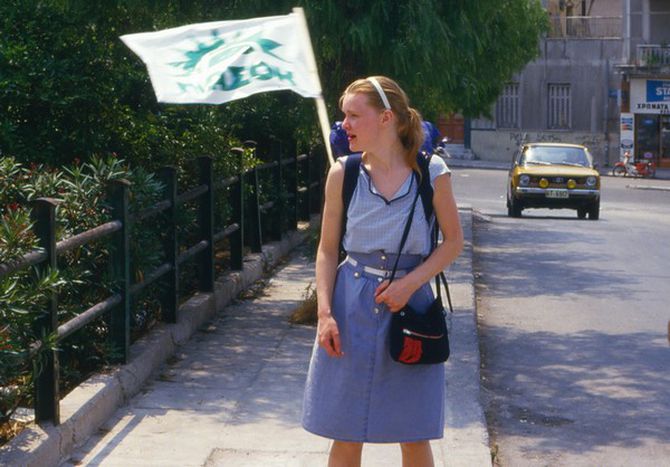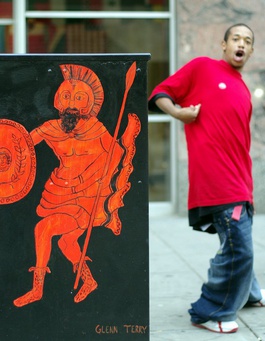
The randomness of voting and the media in Greece
Published on
Translation by:
Susannah Readett-BayleyThe country is experiencing a political and economic crisis of such enormity that prime minister Costas Karamanlis called a snap election on 5 October, which he promptly lost. Coverage was chaotic
Costas Karamanlis couldn’t have made a better decision: the early parliamentary elections that took place on 4 October 2009 will open the door to new vitality and reorganisation in the political projects currently underway in the country. The Greek people voted for their new prime minister, GeorgePapandreou. As usual, their choice was between the two majority parties, the Pasok (socialists) and the New Democracy (conservatives). Greece has been a parliamentary republic since 1973 and compulsory voting is the unenforced law, and it might cause you bureaucratical problems later should you not vote. These sanctions have existed since 2001, Yet there are several other 'customs' that remain unique to the peninsula.
Loggerheads on television and in the cafés
 Greece is not only experiencing an electoral 'crisis' but also a media crisis. Television channels are continuously broadcasting programs around the elections. Well that’s normal, you might say. But the problem is, the outcome of all this enthusiasm is disappointing, an even worse: it’s not serious. To give the example of one news programme: a sole presenter hosts the program and four or five guests are invited, experts in the particular area, usually journalists and MPs. In Greek, they are called 'the windows', because they appear in little windows on the screen. These guests make the programme into a complete farce. (It’s a one-of-a-kind in Europe!) Generally, viewers turn off their televisions as they are unable to follow the discussion and have absolutely no comprehension of a completely incoherent debate. All the programme communicates is pent-up tension which is, of course, a clear indication of the levels of stress surrounding the election. But, during the entire sixty minutes of the programme’s running time, nothing new is covered and nothing is resolved.
Greece is not only experiencing an electoral 'crisis' but also a media crisis. Television channels are continuously broadcasting programs around the elections. Well that’s normal, you might say. But the problem is, the outcome of all this enthusiasm is disappointing, an even worse: it’s not serious. To give the example of one news programme: a sole presenter hosts the program and four or five guests are invited, experts in the particular area, usually journalists and MPs. In Greek, they are called 'the windows', because they appear in little windows on the screen. These guests make the programme into a complete farce. (It’s a one-of-a-kind in Europe!) Generally, viewers turn off their televisions as they are unable to follow the discussion and have absolutely no comprehension of a completely incoherent debate. All the programme communicates is pent-up tension which is, of course, a clear indication of the levels of stress surrounding the election. But, during the entire sixty minutes of the programme’s running time, nothing new is covered and nothing is resolved.
A similar situation can be observed in town squares: in Greece, each political party sets up a stand in Athens. The new democracy party set its stand up on Constitution Square. The Greek communist party (KKE)’s stand is on Concorde Square; each has its own 'post'. This leaves little feasibility in the secret vote - if you are seen to be visiting one square more often than another everyone will know who you are going to vote for. It is, however, fun to listen to all the different commentaries and arguments being hammered out over a cup of coffee in the middle of these public zones...
Village voting
There is one last unique detail: on election day, all Greek citizens must travel to their town or village of origin. When a poll is taking place, which is always on a Sunday, schools and some professions close from the Friday to the Monday evening to let people be able to travel. Identity documents resembling an electoral card are also held at the place of birth where people are registered. Some people transfer all this to their current place of residence, but most remain loyal to their roots. Electronic voting should be taken advantage of to resolve this problem?
Translated from Dans les cafés, à la télé… la campagne électorale en Grèce



